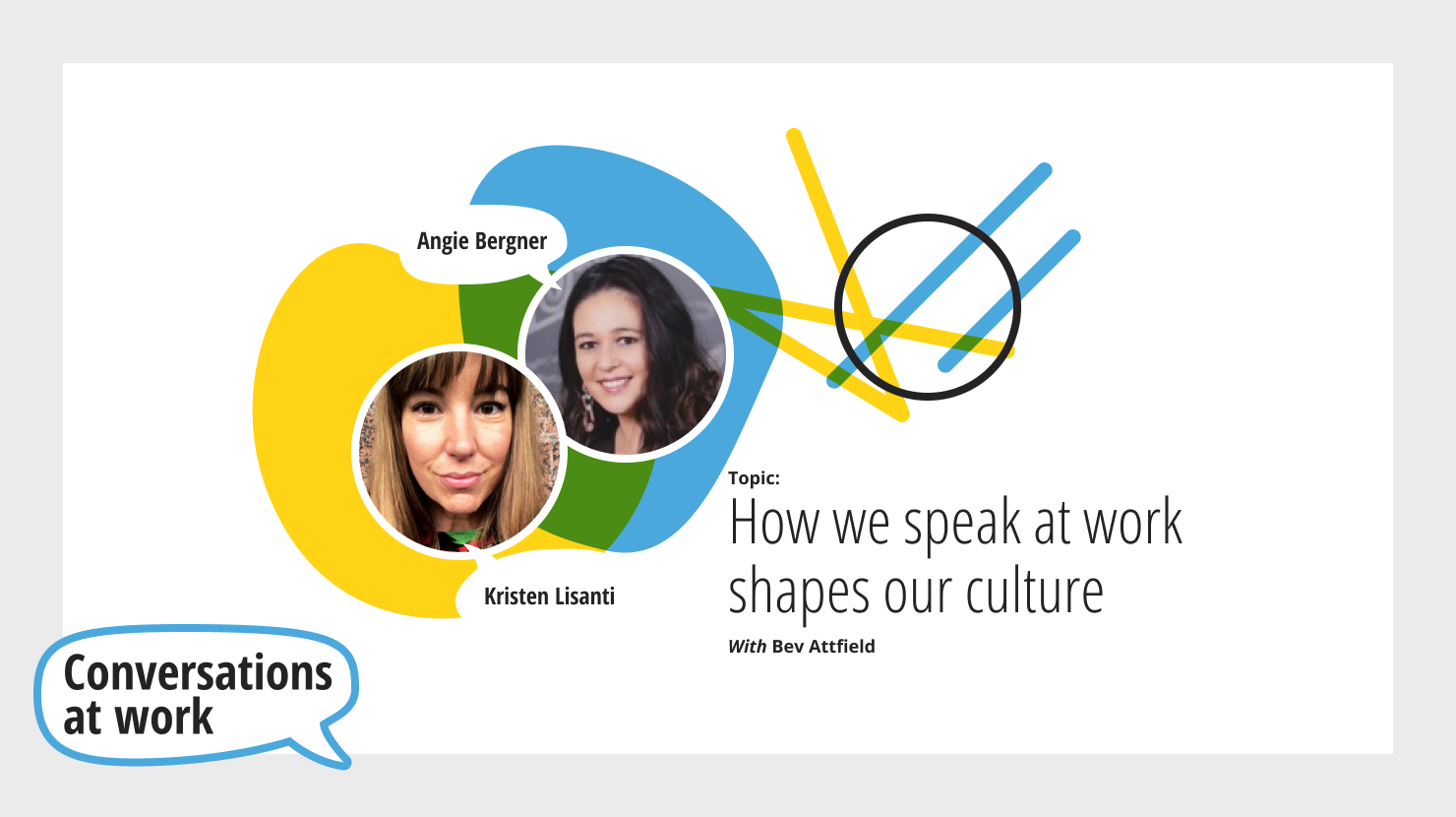
5 min read
Our choice of words impacts culture and what it feels like to be part of an organization. In our first Conversations at Work session, we explored together what this means for building trust, creating safe spaces, and why mindful conversations are critical.
By Faye Wai
Welcome to Conversations at Work! This is Jostle’s unique series, where we hold space for today’s leaders to come together and explore how we’re shaping culture, creating connections, and driving change through our conversations with one another. We hope our bi-weekly virtual series opens space for dialog that leads to action in the pursuit of better workplaces.
In a world where we hope to bring our whole selves to work, we want to feel accepted for who we really are, the ideas we bring forward, and our outlooks of life in general. All of this is communicated with our language and how we use it.
Do you pay attention to the way you speak at work? Every choice of word, whether you come off as arrogant or respectful, has its place in influencing the experience of our interactions and relationships at work. All of those interactions shape our workplace culture.
To really get a feel for the extent of this, our Principal of Workplace Science, Bev Attfield, with guests Angie Bergner, Head of People Operations for Ivy Research Council, and Kristen Lisanti, Chief Culture Officer with BCW, explored a few common communication scenarios at work. Here are some golden nuggets from the session:
Have you ever felt misaligned with your company’s values because leaders aren’t “walking the walk”? I certainly have, and from what I’ve experienced, leaders demonstrating consistency is key to setting the tone for culture and encouraging specific behaviours.
We explored leading by example with humility and vulnerability in company-wide settings like town hall meetings. As employees, we often look at the way our leaders show up with their words and how they use their voice. Angie says that allowing yourself to be a vulnerable leader is a crucial part of building a company culture of autonomy and trust especially in the circumstances we live in today.
Kristen uses the analogy that culture is the ecosystem of the workplace. Leaders carry the integral role of setting workplace conditions, and oftentimes we can decipher leadership priorities through their tone of voice. Encouraging people to pose questions and ask for help can establish a psychologically safe environment where your people embrace challenges, rather than perceive them as a threat.
Pro tip: Instead of establishing concrete values, share a set of intentional practices. This helps adopt a growth mindset—accepting that instead of being on a quest for perfection, we’re really just all going through a process of development.
For example, a “default to open” leadership approach allows for upwards feedback to keep leaders accountable and connected with the rest of the organization.
How do we make it easy for everyone to speak and contribute, rather than leaving it to the leaders to drive conversation? Holding space without judgement for employees to freely share ideas allows them to be innovative knowing that they’re supported through obstacles.
Kristen shares that her organization maintains a purposeful “conscious conflict code” that outlines keeping conversations generative even through the anticipation of disagreements. By establishing that all teammates are working towards the same goal, we allow participants to fully engage in the conversation consciously and respectfully.
Pro tip: Always set out the expectations and outcomes of a meeting. Use standardized agendas to get everyone on the same page, and be mindful of inclusivity in communications. Rotate turns being the facilitator to create a sense of shared responsibility. Not only does this emphasize closer connection and ownership, it also helps eliminate gender and racial biases.
Do you find yourself always dreading the feedback rounds during annual reviews and 1:1s? It doesn’t always have to be that way. Instead, you can look at it as a growth opportunity.
By intentionally choosing our words, we can use questions to reflect and seek solutions moving forward. The key is less about proving yourself, but putting more focus on ways to improve.
Pro tip: It’s important to have regular two-way feedback and ask yourself the following questions beforehand:
It’s not just about being selective with your words, but listening with intent. By focusing on the speaker then following up with your own takeaways, a feedback loop helps ground both parties and keep them on the same page. Self-awareness also plays a huge role in our quality of conversations.
A challenge for you: Moving forward, how can you be intentional to improve the way you speak at work?
Take it slow. These practices all take time and work—it’s one thing to understand a concept intellectually, and another to actually engage with the complex experience of learning and unlearning.
Not all of this comes naturally to us, and it definitely takes great effort to master and act in accordance with these practices. Some of us are fortunate that our workplaces provide opportunities and resources for us to do so; others will have to rely on leaders to really step up with humility and vulnerability.
A big thank you to our guests, Angie and Kristen, and all participants who shared their time and ideas with us! It was a truly engaging and interactive experience. Check out the recording and let us know if you have any additional thoughts on the topic in the comments below.
We all have a voice and we’d love to hear yours. Tune into our next session on speaking out about racism at work by registering here.
Read more by
Faye Wai
Jostle’s employee success platform is where everyone connects, communicates, and celebrates at work. Find out more at jostle.me. © 2009–2024 Jostle Corporation. All rights reserved.